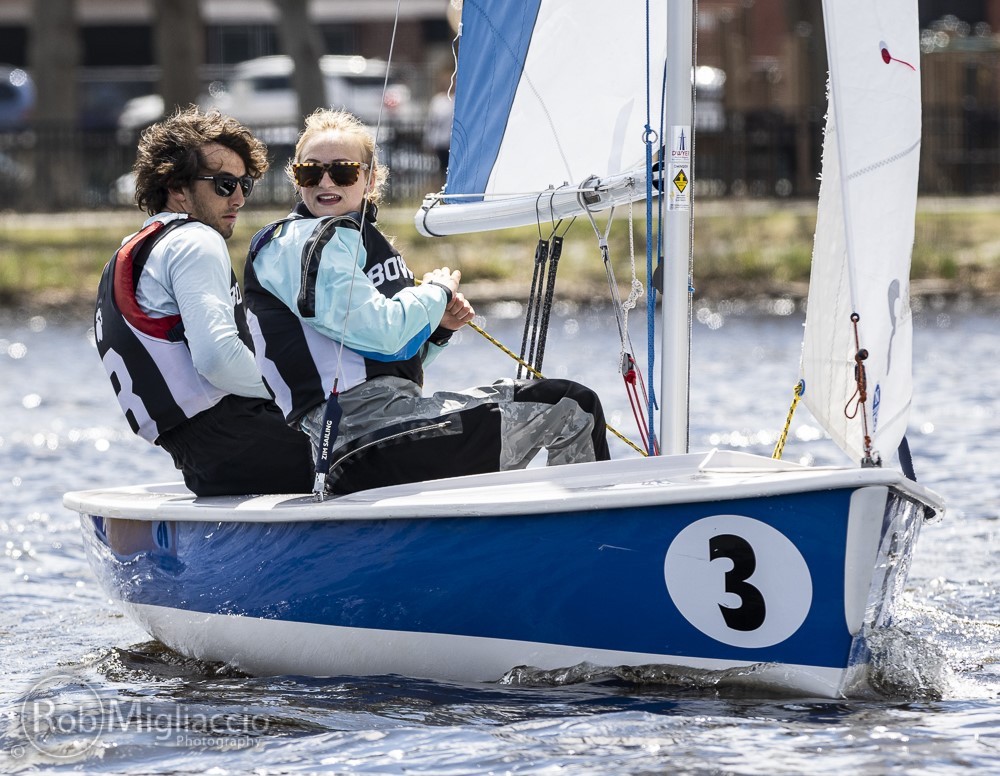Sailing team qualifies for national championships
May 6, 2022
 courtesy of Rob Migliaccio
courtesy of Rob MigliaccioThis week, the women’s and coed sailing teams finished their regular season with a victory. Around half of the team will travel to New Orleans to compete against some of the top sailing programs in the country in the Intercollegiate Sailing Association (ICSA) National Championship hosted by Tulane University on the weekends of May 19 and May 23. They will be competing against Division I teams such as Boston University and Yale University.
The regatta will span across four days, featuring events like the ICSA Team Race Championship, ICSA Dinghy Championship and ICSA Women’s Championship. The first half of the tournament will include 36 teams in two divisions, and 18 teams who make the cut will compete for the championship title in the last two days.
The selection process for this championship involves an ICSA selection committee, which interprets the collective results of a team and judges whether or not they qualify for the competition.
“This year, both fall and spring regatta results are counted towards … your resume,” skipper Lizzy Kaplan ’23 said. “You get to be okay with maybe some harder events, as long as you continue to see improvement. It’s a process of being really diligent the whole year as opposed to having everything leading up to one event. I think that is a product of a lot of hard work, both in terms of sailing and also in terms of team development.”
The Polar Bears enter the tournament following a successful regular season. Like many athletic teams, the sailors were eager to make up for lost time due to the pandemic and sharpen their skills in time for this year’s season.
“We started the season very learning-focused, trying to keep our race results important, but not [have them be] the most important thing for us this season,” captain John Seider ’22 said. “No one on our team of 34, except for four seniors, have really sailed a spring season before this, which is crazy. So, we were and are very focused on learning, getting up to speed [and] making kind of a long-term investment.”
This initial learning curve meant that the beginning of the season was not without its challenges.
“At the start, we had some tough outcomes in team racing, but [we] brought it back together for fleet racing [and] for the national championships,” Seider said.
Focus has been a crucial skill for the team as it began to compete again after its pandemic hiatus.
“As a team, we’ve always had a lot of focus, and I think it’s been one of the things that has carried us through the pandemic pause in our sport and our discipline,” Seider said. “We’re looking to get our young sailors and our older sailors just exposure at a national championship event. It’s been two years since the last time we were at an event like this. It’s the most competitive fleet in the country that will sail, and so it’s an awesome opportunity.”
Due to Covid-19 restrictions, the team was unable to practice certain racing techniques last spring, so more patience was also required this past season.
“It has definitely been a year of teaching,” Alex Kitay ’23 said. “At the start, we had less institutional knowledge for team racing. I am proud of the improvement we’ve made and the commitment we have shown to the team.”
Kaplan believes that camaraderie among teammates has also served the team well. Morale boosting exercises helped keep spirits high throughout long practices and races.
“During a regatta or after practice, we do a huddle or little hug,” Kaplan said. “It’s just little things like that that [help]. Showing that you are supporting your teammates [is] really helpful, because sometimes you have bad races and there’s a lot of emotions wrapped up in [it]. Knowing that your teammates will always be there for you has been the best part.”

Comments
Before submitting a comment, please review our comment policy. Some key points from the policy: